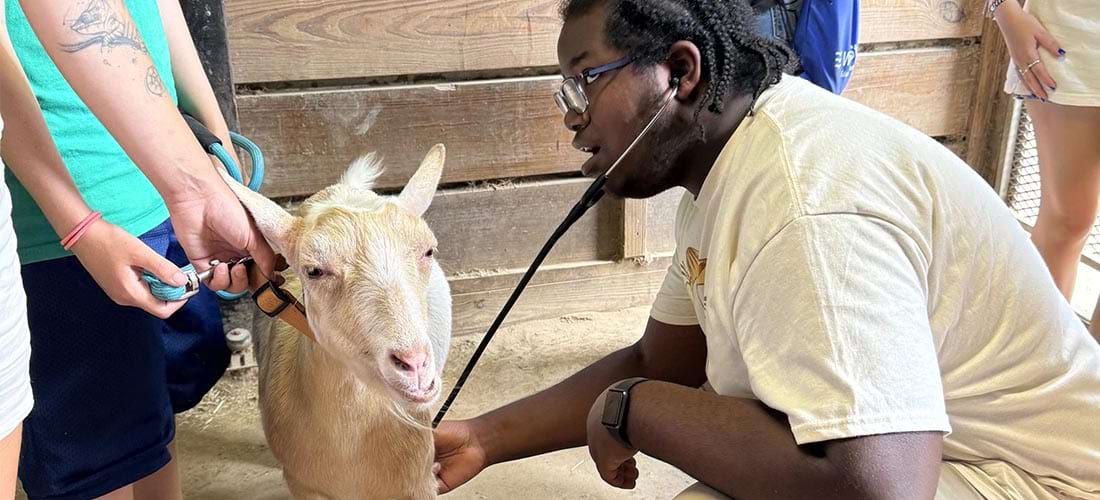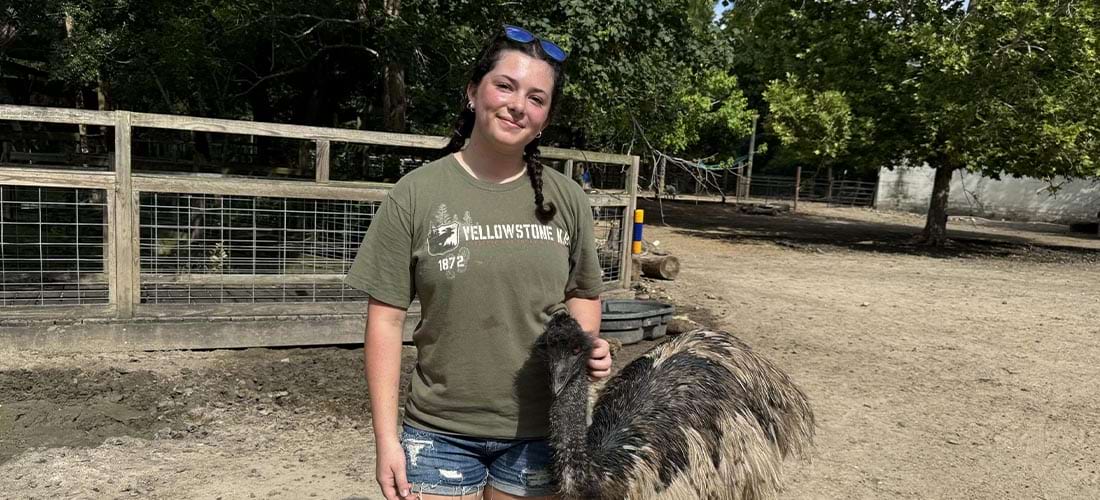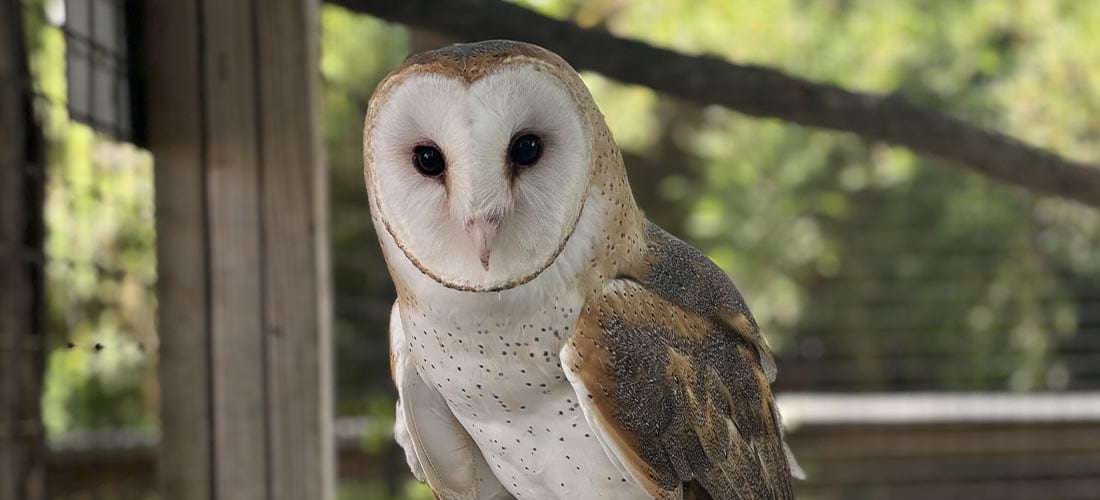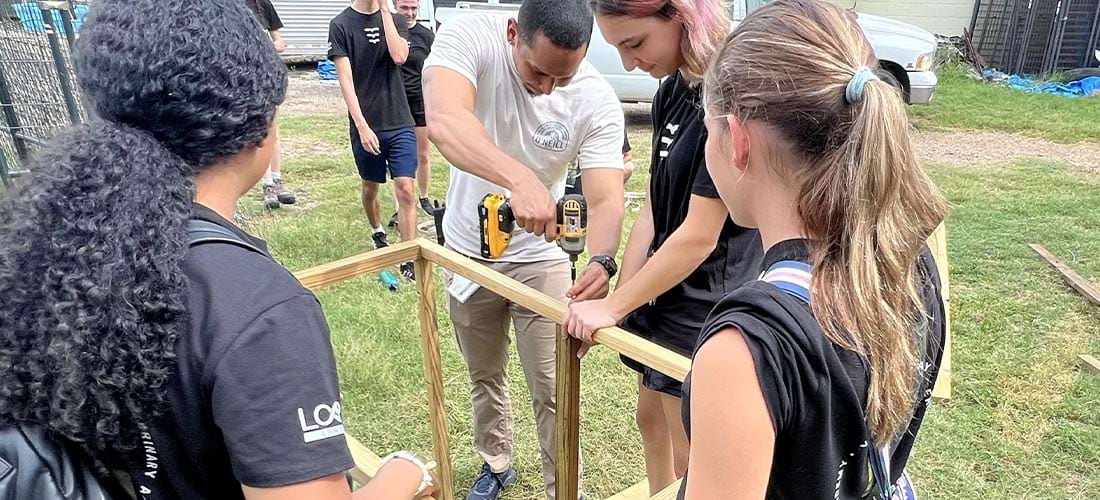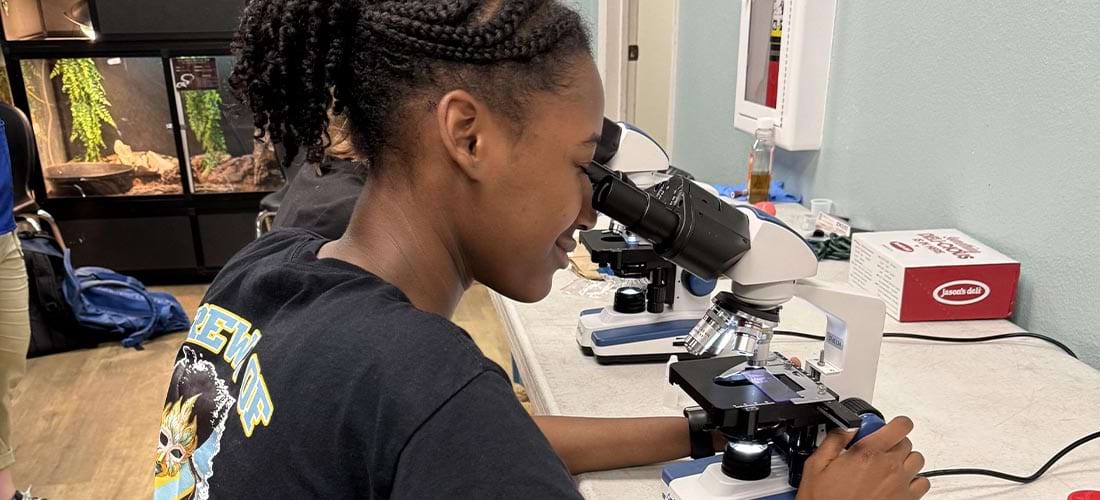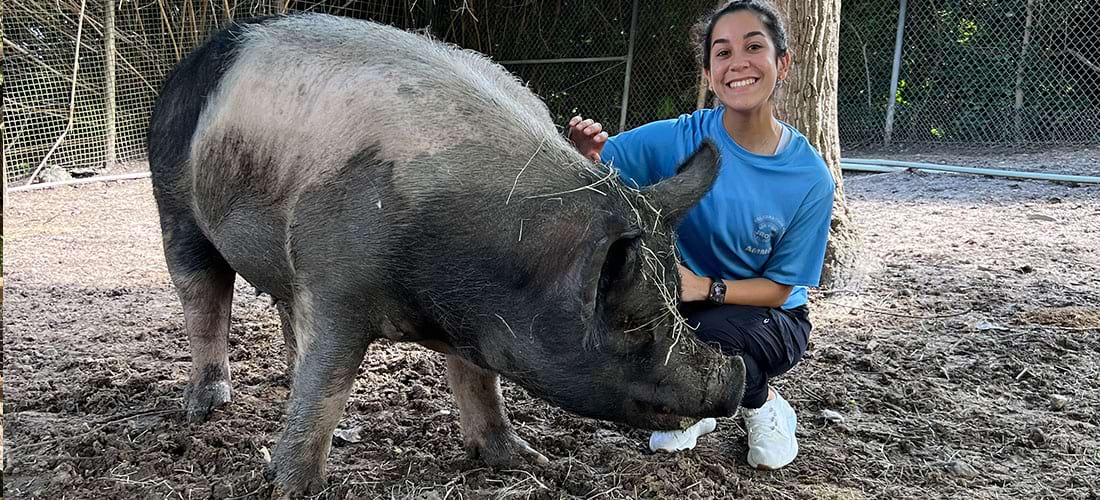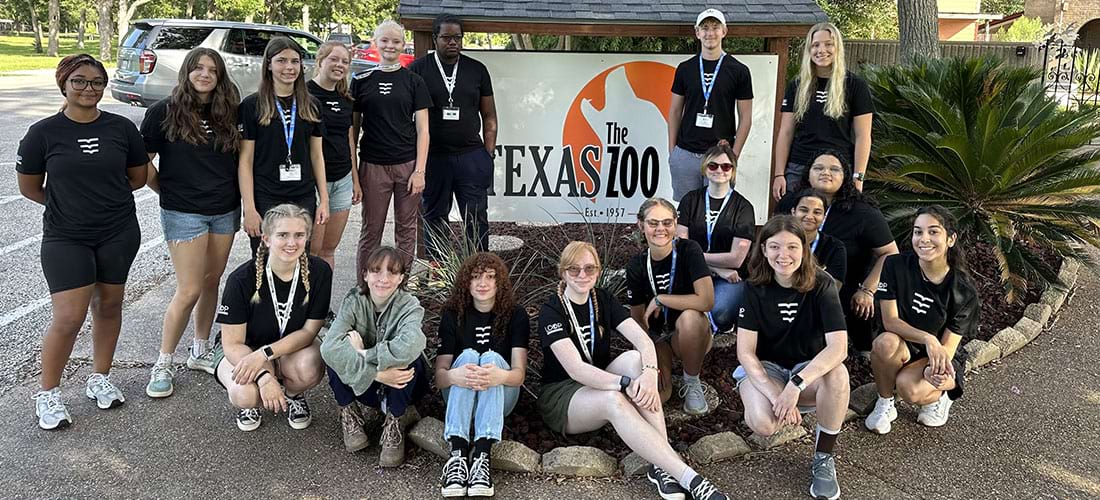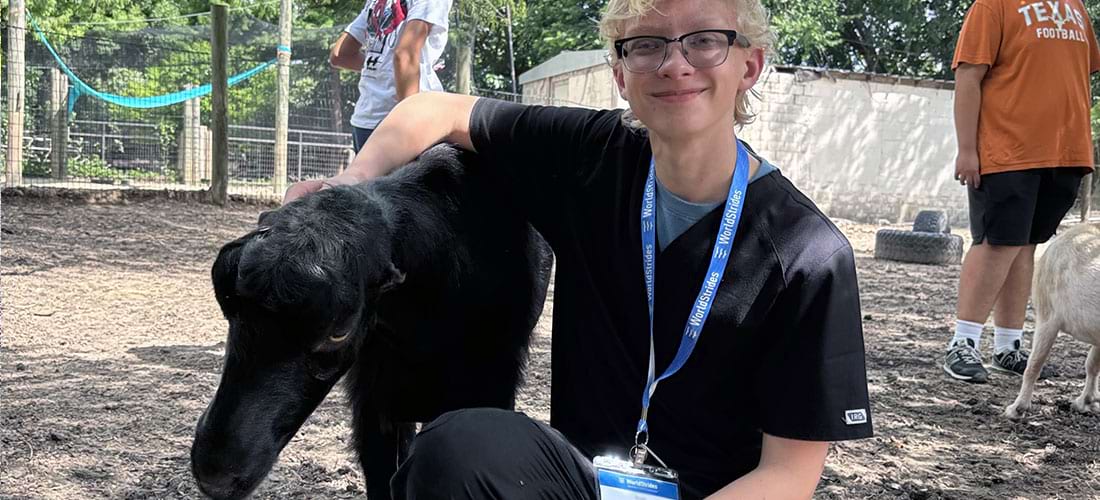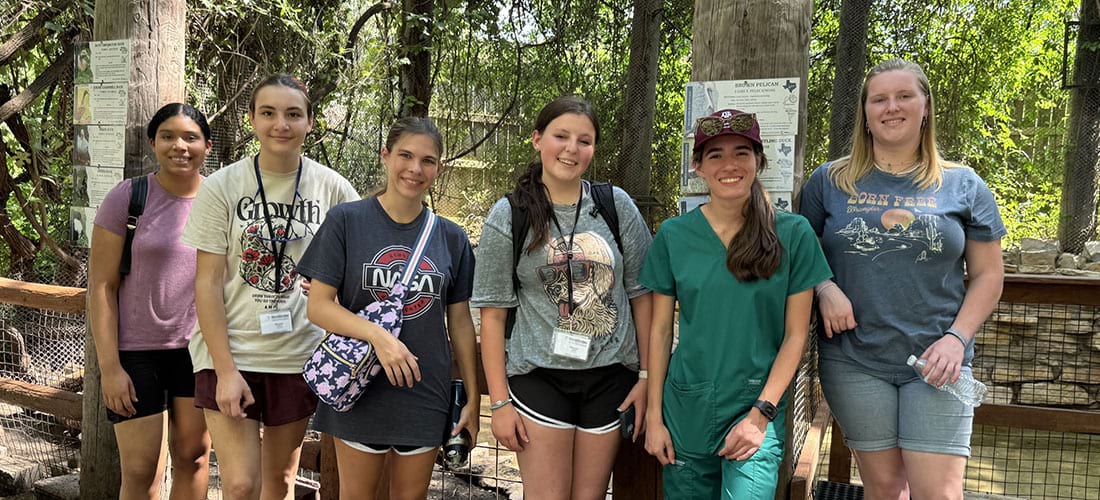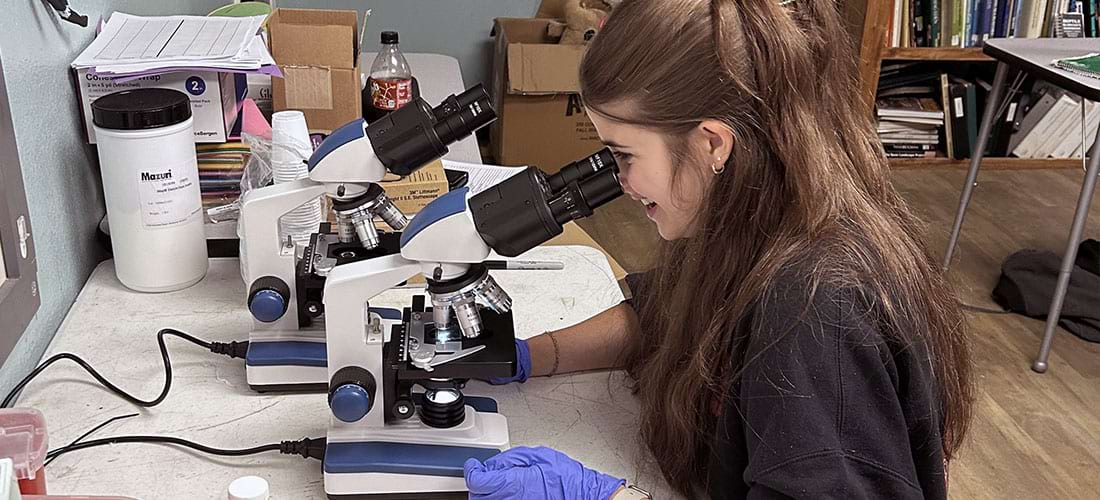Veterinary Academy: Zoo Medicine
Experience a week in the life of a working veterinarian as you help care for over 70 species of animals at the Texas Zoo. You’ll also hear from other animal experts about enclosure design and the important role of zoos in conservation around the world.
Check out our Veterinary Academy: Zoo Medicine program in Massachusetts, too!
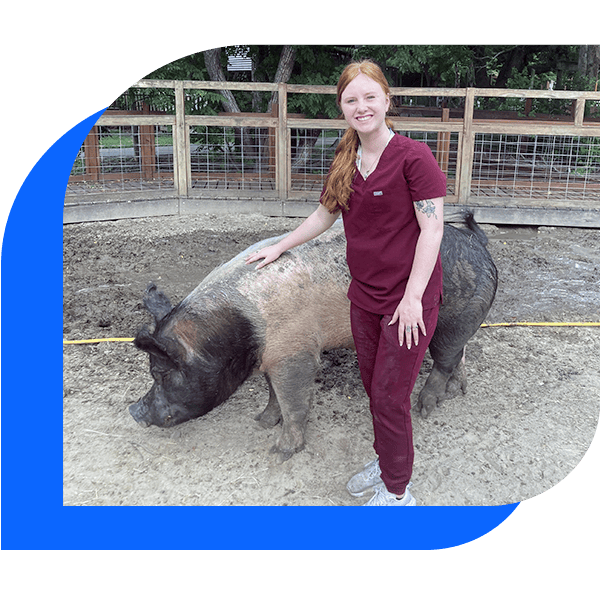
Prepare for the future
- Daily field classes on topics including large animal exams, rehabilitation and release, and designing animal enrichment activities
- Researching and presenting your own Keeper Talk to the visiting public
- Time in the lab to discover topics including animal first aid, parasitology, and enclosure design
By attending Veterinary Academy: Zoo Medicine, you can earn up to 40 veterinary hours, a required part of every vet school application.
2026 High School Program Dates & Tuition
- 7 Days
- June 21-27
- June 28-July 4
- $4,599
What’s Included
All meals
On-campus accommodations at Texas A&M University-Victoria
10:1 teaching vet-to-student ratio
Up to 40 veterinary hours
Program Highlights
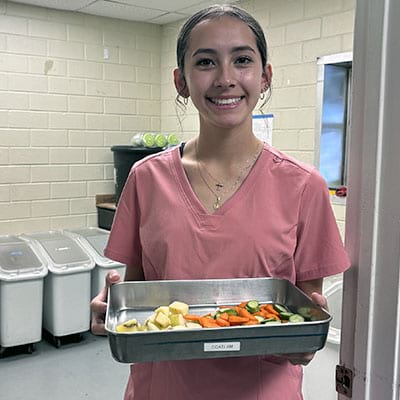
Animal Care Rotations
On your first day at the Texas Zoo, you’ll be split into three groups. Each group will take turns rotating through different learning activities on food preparation, enclosure maintenance, and animal enrichment.
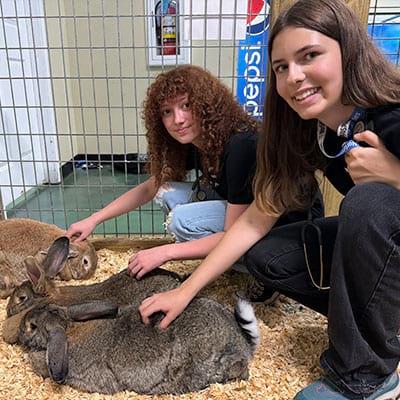
Field Classes
The zoo will become a living classroom for you and your fellow attendees as you explore important topics like animal behavioral observations, zoo ethics, and veterinary diagnostics across different areas of the Texas Zoo.
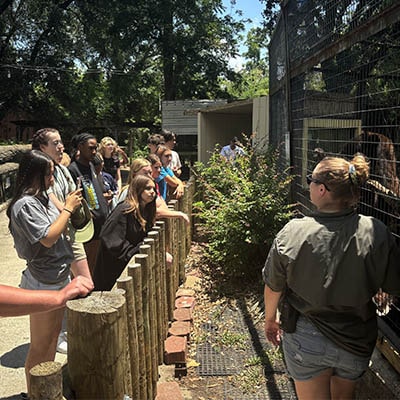
Public Outreach
After four full days of exploration at the Zoo, you will research a specific topic pertaining to animal conservation that you’re passionate about and present your findings during your own Keeper Talk with the visiting public!
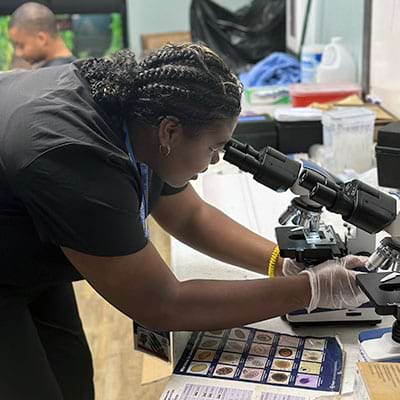
Lab Time
Much of a zoo veterinarian’s time is spent in the lab, treating animals for various injuries or performing wellness exams. You’ll participate in several different lab activities including wound suturing, parasitology, small animal physical exams, and an enclosure design workshop.
Your Adventure, Day by Day
Day 1
Arrival in Victoria, Texas
Day 2
Exotic & Wildlife Mammals
Day 3
Large & Domesticated Animals
Day 4
Reptiles
Day 5
Avians
Day 6
Careers in Veterinary Medicine
Day 7
Departure
What some of our students and their parents are saying…
The [program] was very interesting to him. He actually wanted us to go to the zoo the day we picked him up so he could show us around! He loved it.”
I honestly really enjoyed the program. I loved not only getting to know the staff and other students but also the zoo keepers. They really knew what they were talking about and it was good to be able to get to know them and ask them questions.”
Want to learn more? Fill out this form to schedule a call with one of our advisors
By submitting this form, I confirm that I am at least 13 years of age and provide my written consent for WorldStrides to contact me using email or telephone—including the use of automated technology and prerecorded messages for calls to any wireless or residential telephone number I provide. This consent is not required to purchase goods or services.
**Available in the U.S. only. Message and data rates may apply. You may opt out of text messaging at any time by replying STOP.
For the safety of students, staff, and animals, not all animals may be touched or handled by participants. The teaching veterinarian and other professional staff members will advise students of the proper time, place, and method to handle animals when it is safe to do so.

